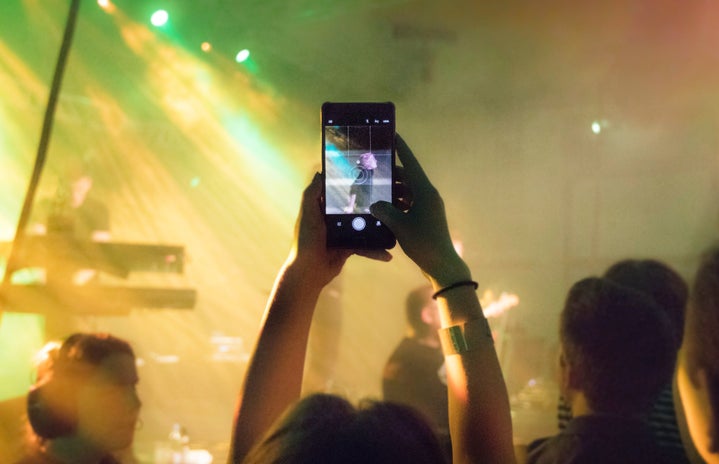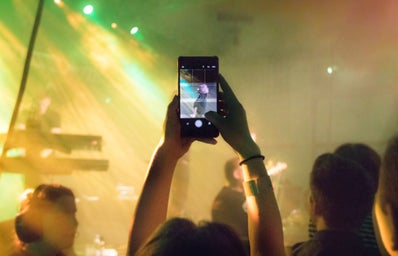I’ve always been incapable of listening to music while studying or reading. For me, I find myself focusing more on the lyrics or enjoyable beat than what I’m supposed to be learning through my textbook. A lot of my friends, however, find it easier to study with the music. They say it helps them remember facts.
I know there’s absolutely no chance that I’ll ever be sitting in a lecture hall taking a final exam and thinking, “I know the answer to this because I was listening to “Mambo No. 5” when I read this section.” But turn on “Landslide” by Fleetwood Mac and I can recall the exact part of St. Louis I was in as my mom turned it up on the radio and sang along on our first trip to Kansas City to visit my dad in 2009. I can tell you the make, model and year of the car we were in and I can tell you what the weather was like. Even a song like “Here In Your Arms” by Hellogoodbye takes me back to my middle school best friend’s birthday party. She rented a room out at an event hall in Holiday Shores, and the dance floor had wooden tiles with alternating grain patterns. The tables were circular with white table cloths and I gifted her the deluxe version of the Jonas Brothers album in 2007. When that song came on, I was pulled from my seat and we danced like crazy.
While music is distracting when it comes to my schoolwork, it’s still a strong memory aid in my life. What is it about music that can bring back such vivid memories of people and places in your lifetime?
In 2011, Finnish researchers did a study that was published in NeuroImage concerning the effects of music on the brain. Rather than focusing on links to memory, these scientists looked at which parts of the brain were active while listening to Argentinian tango and found that areas of the brain where motor, emotional and creative functions were housed lit up. Through this study, a clearer idea of what neural networks are affected through music helped set a starting point for further studies regarding music and the brain.
For years, scientists have been using music to try to re-create memories for patients with Alzheimer’s or motor functions for people with Parkinson’s. However, in 2013, Australian researchers began to study the effects of music to help people with traumatic brain injuries recall memories. Tested on a small group of people, Amee Baird and Séverine Samson played Billboard Hot 100 songs in a random order, coming from years of a person’s lifespan beginning at five. In those participants, the highest number of memories evoked had association with a person or period of time and were positive. Those particular songs were noted as being liked more than songs that didn’t have an association.
Best put by a professor of psychology at UC Davis’ Center for Mind and Brain, Petr Janata says, “What seems to happen is that a piece of familiar music serves as a soundtrack for a mental movie that starts playing in our head. It calls back memories of a particular person or place, and you might all of a sudden see that person’s face in your mind’s eye.”
That reminds me of spring 2014, sitting passenger seat in my best friend’s car as we made our way back to Kansas from Indiana. “Earthquake Weather” by Matt Nathanson came on shuffle and I drew my legs to my chest and let my head rest against the glass, following the after-rain greenery that spanned the length of the highway. Occasionally, I’d catch my own reflection in the glass.
“Did you just go into sad music video mode?”
“What?!” I asked, startled that she’d noticed my mindset.
“You did. You totally did,” she said smugly.
As embarrassing as it is to admit to it, she was absolutely right.



